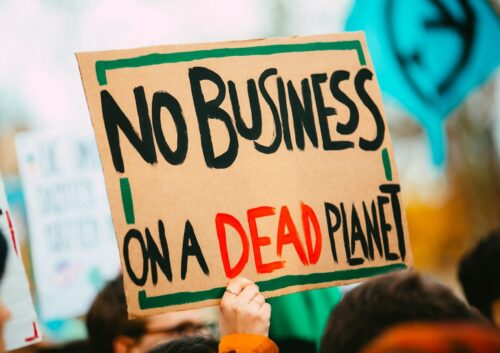
…Consumers are starting to pay for the energy transition, and they aren’t happy about it. [emphasis, links added]
Governments that were among the earliest in the world to adopt climate legislation tried to take the sting out of the transition by motivating consumers with subsidies.
Now, however, the same capitals are cash-strapped and many are passing the bill to the consumer.
Subsidies are being scaled back, taxes tied to carbon emissions are being phased in, and rules requiring expensive renovations are starting to bite.
Many consumers, including those who broadly support the energy transition, are unwilling to pay up.
Farmers have laid siege to Paris and other European capitals over plans to remove diesel-fuel subsidies.
German households have rebelled against requirements to replace polluting gas boilers.
In California, homeowners and small businesses seeking to install solar panels are running up against new metering rules that cut by roughly three-quarters the amount of money they can get for selling electricity back into the grid.
Governments lined up a slew of climate measures years ago when interest rates were low and energy supplies seemed abundant. Now those changes are coming into force, and governments are facing a new calculus.
Wars in Ukraine and Gaza are forcing Western governments to spend more on defense while grappling with higher energy costs and inflation.
The challenge lies in designing climate policy with geopolitical shock absorbers. French President Emmanuel Macron has suggested Europe might require a “regulatory pause” so its economy can absorb the impact of the Ukraine war, and the European Union has recently trimmed some of its climate measures. …
For now, energy-transition fatigue is setting in.
Three-quarters of energy consumers say they have already done as much as they can to be sustainable, according to a survey of 100,000 people over 20 countries by the research arm of accounting firm Ernst & Young.
The energy transition is falling “on the shoulders of the low- and mid-income-level people in a disproportionate way,” said Fatih Birol, chief of the Paris-based International Energy Agency, which is tasked with keeping governments on track to meet their climate targets. “The worst thing for the energy transition is that it is perceived as being done by and for the elites.”
Households are getting hit with the ballooning costs of building or upgrading electrical grids and other critical infrastructure to support the energy transition.
Electric rates under California utility PG&E have increased 127% in the past decade along with surging costs for wildfire prevention and grid upgrades.
Nearly a quarter of the utility’s customers are now delinquent on their bills.
Read rest at WSJ



















The Turkeys the Eco-Freaks all grew up and have come home to roost I sure hope the Eco-Freaks can care for them their own creations of their Eco-Stupidity
All of the above was predictable. It was predicted by skeptics, but they were ignored.
Climate change mitigation costs are increasing and will increase further.
Altruism dies when it costs.